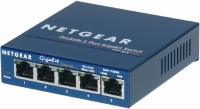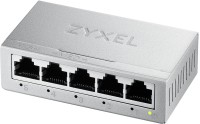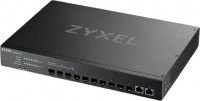TP-LINK TL-SG1008P
 | $68.99 Buy! TP-LINK TL-SG1008P - 8 Port Gigabit PoE Switch - 4 PoE+ Ports @64W - Desktop - Plug & Play - Sturdy Metal w/ Shielded PortsOfficedepot.comDelivery: in USA Report |
TP-LINK TL-SG1008P 5 GE 56 W 8 GE 55 W | ||||||||||||||||||||||||||||||||||||||||||||
|
| |||||||||||||||||||||||||||||||||||||||||||
Always clarify the specifications and configuration of the product with the online store manager before purchasing.
Catalog TP-LINK 2025 - new arrivals, bestsellers, and the most relevant models TP-LINK.
TP-LINK TL-SG1008P configurations
| Price for TP-LINK TL-SG1008P | ||||
|---|---|---|---|---|
| TP-LINK TL-SG1005P | from $44.10 | 2 offers | ||
| TP-LINK TL-SG1008P | from $68.99 | 1 offer | ||
This affordable 8-port switch features Gigabit speeds on every port. This is an undoubted advantage of this inexpensive model, since it allows you to create a fast local network with a minimum delay in the transfer of large amounts of data. 4 of the 8 ports are PoE capable, enabling easy LAN connection of active devices with power consumption up to 15.4W per port, which complies with the IEEE 802.3af standard. Most PoE-enabled IP cameras, which are typically connected to these ports, are well within this power requirement.
Automatically determines the level of consumption
Ports with PoE technology can automatically detect the level of consumption of a PoE device and supply the necessary power. Data and power are transferred from/to devices over a single cable, which allows you to install active network devices - IP cameras or access points - in places where there is no access to power from a wall outlet. This allows you to install the same IP video surveillance system in the most flexible way, installing cameras in the most convenient places.
Overload protection system
Equipment without PoE support is automatically detected and does not receive power to avoid damage to the electronics. In addition, given the small PoE low-cost (maximum 53 W), the switch was equipped with an overload protection system. If the power consumption of all connected PoE devices exceeds the maximum allowed (a sharp spike in power consumption is possible, for example, when all IP cameras turn on the energy-intensive night IR illumination), the switch port(s) with a lower priority will stop receiving power. On the one hand, this is a minus - for example, one or more IP cameras can “fall out” of the surveillance system. But on the other hand, it prevents the collapse of the entire system due to energy overload of the switch, which is a definite plus. PoE ports have the following priorities: port 1 is the highest priority, port 4 is the lowest. That is, port 4 will be powered down first, and this must be taken into account when creating an IP video surveillance network or connecting PoE access points to this switch.


































